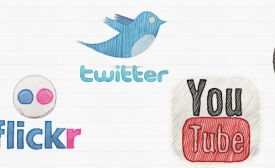new media
Government agencies are increasingly using social networking sites such as Facebook and Twitter to engage the public, but they will also need to establish a clear, well-defined social media strategy to prevent potential backlash, according to industry watchers.

PDiN Monitor Editorial Staff
Sherine B. Walton, Editor-in-Chief
Naomi Leight, Managing Editor
Marissa Cruz-Enriquez, Associate Editor
...United Arab Emirates ambassador to the U.S., Yousef Al Otaiba, was making an official visit when he received a phone call from a friend asking what he was doing in Texas. “How do you know I’m here?” the ambassador responded. It had been on Facebook, said Bader Bin Saeed, media director for U.A.E.’s embassy in Washington.
As the history of past U.S. efforts to use technology to bring progress to other nations reveals, the United States should focus its current digital diplomacy efforts on small wins, not transformative victories.
The Kremlin is getting more Internet-savvy every day. Not only has President Dmitry Medvedev joined Twitter, the Russia government now has an English language web portal to help funnel business and advertise their foray into the information age.
I am suspicious of the phrase “21st-century statecraft”. I am suspicious because I can't define it...Is it a new kind of state-run broadcaster, a digital Radio Free Europe? Is it a new kind of public diplomacy...
Since then, the State Department has brought the issue of online freedom to the table in its diplomacy around the world and joined with Internet providers and social media companies to foster public-private partnership in Internet freedom.
Many academics warn against relying on new forms of media like Wikipedia or Facebook for reliable information. However, an initiative at the State Department is taking advantage of these very platforms to improve agency performance and transparency.







